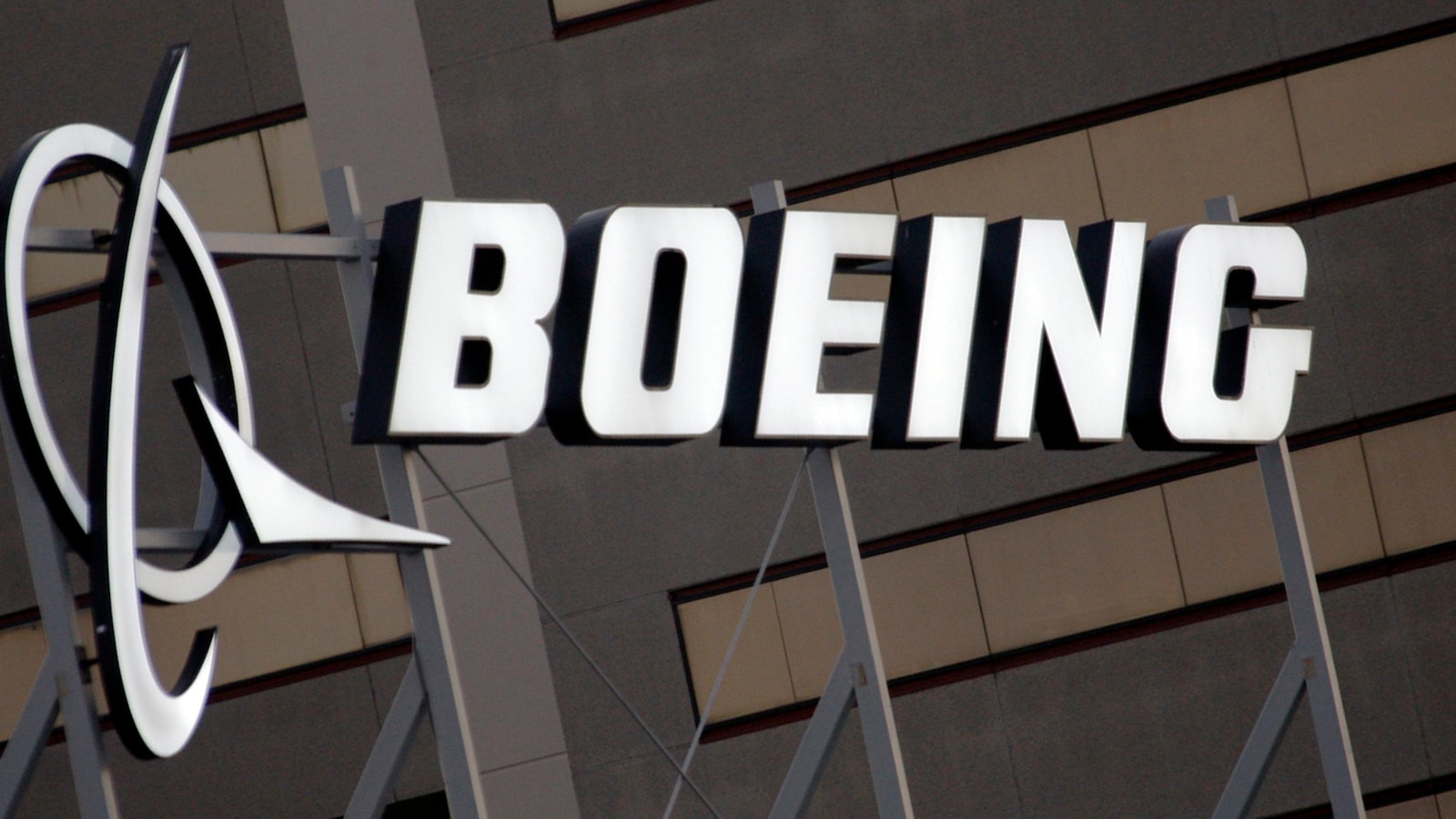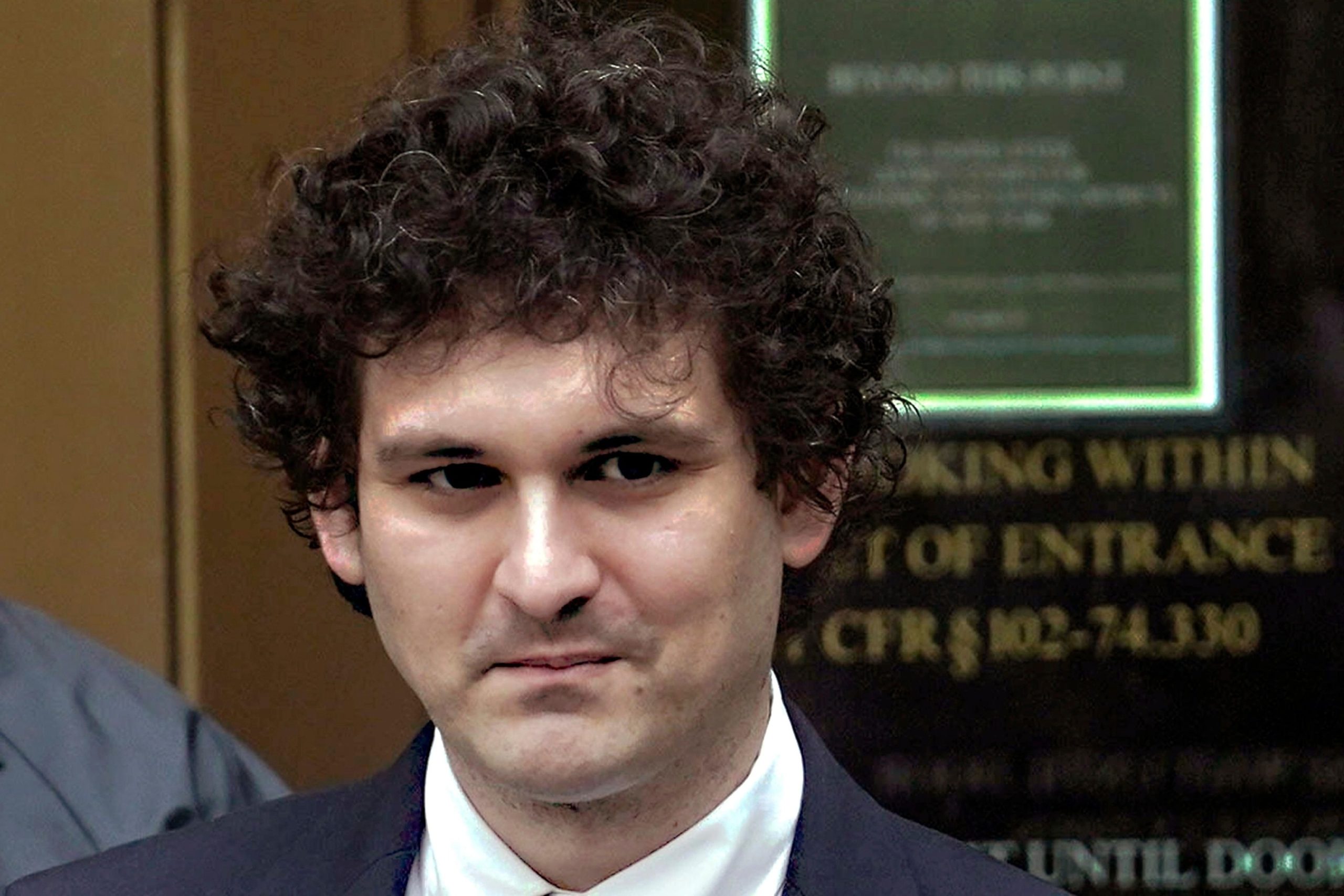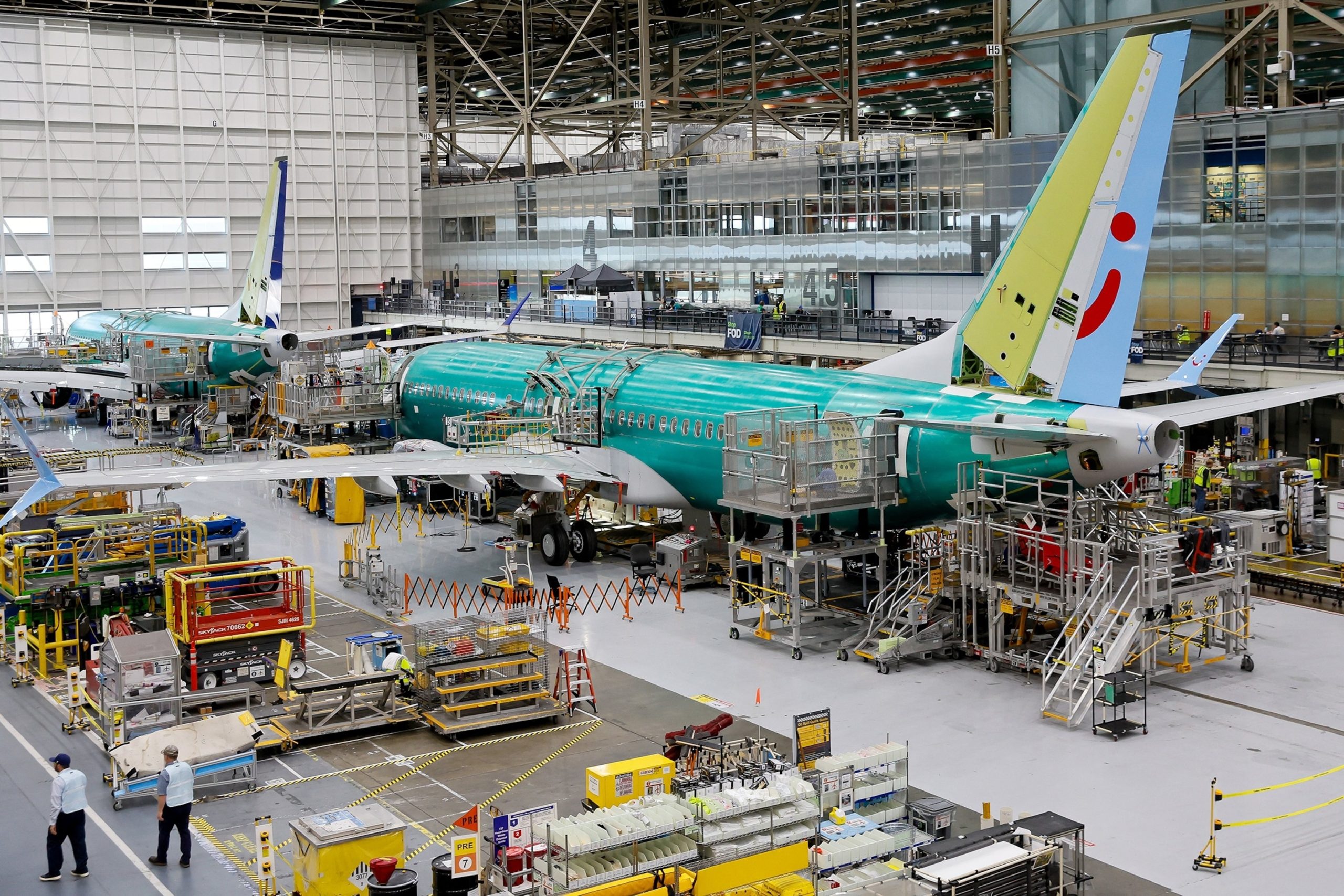
Boeing and its largest union said Sunday they reached agreement on a new contract that, if ratified, will avoid a strike that threatened to shut down aircraft production by the end of the coming week.
Boeing said 33,000 workers represented by the International Association of Machinists and Aerospace Workers would get pay raises of 25% over the four-year contract, with average wages rising 33% due to seniority step increases. That is less than the 40% the union had demanded during negotiations.
But the company agreed with a key union demand to build its next plane in Washington state, presumably by union members.
Workers also would get $3,000 lump sum payments and a lower share of health care costs, Boeing said.
“Negotiations are a give and take, and although there was no way to achieve success on every single item, we can honestly say that this proposal is the best contract we’ve negotiated in our history,” Jon Holden, president of IAM District 751, the machinists’ union outpost at Boeing, said in a statement posted on the union website.
The union’s bargaining committee is recommending that members ratify the contract, Holden said.
The president of Boeing’s commercial airplanes division, Stephanie Pope, said Sunday in a video for employees that the proposed contract includes the company’s largest-ever general wage increase. She said the promise to build Boeing’s next new airliner in the Puget Sound area means job security for generations to come.
The proposed contract is contingent on union members ratifying it by late Thursday night Pacific time, after which the union was threatening to strike.
The union has scheduled a two-part election for Thursday, with workers voting whether to accept the contract, and whether to authorize a strike if they reject the offer. Voting will occur at about a half-dozen locations in Washington state and one in California.
A strike would have added to the headwinds facing Boeing, which is hurtling toward a sixth straight money-losing year and just hired a new CEO to turn things around.
The new chief executive, Kelly Ortberg, will try to reverse $27 billion in losses since the start of 2019. His assignment includes fixing problems in Boeing’s aircraft-manufacturing process, gaining regulatory approval for the long-delayed 777X jumbo jet, limiting damage from over-budget government contracts, paying down $45 billion in net debt, and absorbing Spirit AeroSystems, the money-losing key supplier that Boeing just bought for $4.7 billion.
Ortberg has sounded conciliatory toward the machinists’ union.
“He understands that they are basically contentious relationships with the union, and he wants to make those relationships better,” TD Cowen aerospace analyst Cai von Rumohr said.
Boeing, one of the world’s leading aerospace companies, has reached an agreement with over 30,000 machinists to prevent a potentially damaging strike. The International Association of Machinists and Aerospace Workers (IAM) had been in negotiations with Boeing for several weeks, with the possibility of a strike looming over the company.
The agreement, which was reached just hours before the deadline, includes a new contract that will cover the next four years. The deal includes wage increases, improved benefits, and job security provisions for the workers. In exchange, the machinists have agreed to forgo a strike and continue working for Boeing.
The potential strike had raised concerns among investors and customers, as any disruption in production could have had a significant impact on Boeing’s operations. The company is currently facing challenges due to the ongoing COVID-19 pandemic, which has led to a decrease in demand for commercial aircraft.
Boeing’s CEO, Dave Calhoun, expressed relief at the agreement, stating that it was a positive outcome for both the company and its employees. He emphasized the importance of working together to overcome challenges and ensure the company’s long-term success.
The IAM also welcomed the agreement, with union leaders praising the hard work and dedication of their members throughout the negotiation process. They highlighted the importance of fair wages and benefits for workers, as well as job security in uncertain times.
Overall, the agreement between Boeing and the machinists is a positive development for both parties. It ensures stability and continuity in production, while also addressing the needs and concerns of the workers. By working together and finding common ground, Boeing and the IAM have demonstrated their commitment to collaboration and mutual success.


